|
Welcome back, Trey! Thanks for returning for another chat about writing. First, a few quick-fire questions: Pen or Pencil? Light wood or dark wood furnishings? And what TV series are you watching currently? Pencil! Though I rarely write anything by hand anymore - I use my phone or laptop for all my idea keeping needs. Dark wood furnishing! My wife and I have somehow developed a fascination for old furniture and things and most of it is plain, dark wood. And whatever stuff we have that isn’t gets sanded down and oiled. We’re currently keeping up with Ted Lasso and working our way through the second season of Succession. That show is brilliant. We also recently began re-watching Fringe, which I must say, I had forgotten how good that is. If you’re a fan of X-Files, you’ll love that. Before we dive into things, let’s catch up. We connected before the pandemic and, like many of my writer friends, we just reconnected after some strangely warped period of time that apparently was like what—three or four years? What have you been up to? How did you spend your COVID? And what has it been like re-emerging? Yeah, it’s weird how that happened. I felt like it was just a few months ago that we spoke last, but apparently a whole pandemic happened and four years passed, huh? Strange. The year before the pandemic I moved to Svalbard, a Norwegian archipelago in the Arctic. I was supposed to just stay there for a year, but ended up extending my stay there just as the pandemic hit. A frozen, barren island is remote and distant enough if it wasn’t for social distancing and lockdown, so that was a weird time. But it meant I didn’t experience much of the pandemic like everyone else in the world did - we were quite isolated up there, and we didn’t see a single case of Covid-19 until sometime in the middle of 2021. That’s around when I moved back to southern Norway and resumed my normal, everyday life, as much as I was able to. "The year before the pandemic I moved to Svalbard, a Norwegian archipelago in the Arctic...it meant I didn’t experience much of the pandemic like everyone else in the world did..." Since then I published a new psychological thriller (September last year) called At The Gate which has been a lot of fun, and I’ve been working with various other writing projects, both long and short, including the now finally finished A Form Of Revenge. I also joined a death metal band, Dark Delirium, where I play guitar, and I’ve spent the last year kicking life into another musical project I have with two good friends called Maryon, where I both write the music, lyrics and sing. Congratulations on launching A Form of Revenge, book three in the The Columbus Archives! Agent Greer has hit an all time low after being fired from the FBI and is determined to spend as much time staring at his reflection in a near-empty forty of whiskey. Despite the attempts of his friends and colleagues to help stir him from his despair, he remains resolute in his misery until a mysterious stranger shows up. Take us from there, but don’t tell us too much! Jordan Greer finds himself at a sort of dead-end after losing much, if not all, of what he finds to be worthwhile in his life after the events of book two. He’s not really interested in trying to get his life back on track either, no matter what his friends try to do. But when a stranger from Greer’s past shows up, adamant that Greer can help him with an old murder case, Greer quite literally doesn’t have a choice in the matter and finds himself strung along a dark and violent trip down memory lane. That’s the problem you see - Greer doesn’t really remember who his person is, and therefore has a hard time figuring out what he can do to help–and ultimately–escape. "...when a stranger from Greer’s past shows up, adamant that Greer can help him with an old murder case, Greer quite literally doesn’t have a choice in the matter and finds himself strung along a dark and violent trip down memory lane." I recently [admitting with slight embarrassment] read my first murder mystery novel, The Human Flies by Norwegian writer Hans Olav Lahlum. I loved it, no questions there. But I understand that Scandinavian crime novels have their own unique flavor; what sources of inspiration did you draw on either personally or creatively when creating Greer’s world and this series of stories? Well, let me be the second person to admit something with slight embarrassment and say that I don’t read as much Scandinavian crime as I probably should have. I’m actually now reading my first Jo Nesbo novel (The Snowman) and what I’ve read most of before has been Danish and Swedish authors, not Norwegians. For some reason I find myself drawn to go broader, to go far away from what I find familiar, so my series of crime thrillers are set in the US. Maybe it’s because I prefer to write in English (a symptom of growing up in a world where so much of our entertainment comes from abroad, but also from spending a lot of my early twenties in the UK, I’m sure), but I tend to have an urge to not want to write about what I know. All that said, I have a plan to write a Norwegian crime thriller - in Norwegian - and I hope that will be just as cold, harsh and gritty as those Scandinavian mystery novels we all love so much. By coincidence, I am also set to publish the third book in my trilogy later this year. I’d love to know what writing the third book was like as an experience compared to the first two. Was it a struggle? Were you continuing on in a steady groove from the first two or did it feel like a whole new writing experience? I struggled more with the second book than the third, to be honest. My series was always planned to come to a point with this third book, so I had it very clear in my head how I wanted it to go. For now, this series ends there, though I have ideas to do a second trilogy within the same universe that builds on what has come before. But no, it didn’t feel like a whole new writing experience, it felt like a final release, finally all my ideas came together just the way I planned them. My series technically has three protagonists, and each of my books have been dedicated to focusing on one of them. A Form Of Revenge, the third and final book focuses on Jordan Greer who’s our main protagonist and now we finally get his story. "I struggled more with the second book than the third, to be honest. My series was always planned to come to a point with this third book, so I had it very clear in my head how I wanted it to go." One of the insights of writing a trilogy that I will be carrying into my next project is how to write not just a book but a book series. Plotting, character development, and world-building can all be heavily impacted, especially in the later books. What advice do you have for writers who are writing their first book and who are planning on making it a series? To be blunt, the advice I’d give writers who are writing their first book is simple: don’t. Write a standalone or two first and see how it goes. It’s not that I regret starting a series, but I feel like you have more options if you don’t, and you can always write a series next. But, if you’re insistent on writing a series (which admittedly is very tempting when you’re first starting out), sit down and plan it out. I’m not much of a plotter. I’ll take a basic plot, maybe just an ending, or just a scene or two and build a story from that. I like to see where it takes me. But with a series it’s helpful to have at least a couple of stops you know you want to hit on the way there. Think about what your characters are doing and where they’re going. How they get there is for you to figure out along the way, but what’s the end goal? Where does everyone stand at the end? Who’s alive and who’s not? Don’t worry if those things change as you go, suddenly it all falls into place and one character fills the role of another, but it’s good to have a basic map to look at as you go. It’s going to make it a whole lot easier to fill in the blanks as you write. Of course, I have to ask: is this Agent Greer’s curtain call or do you have more books planned in the series? If so, where might his adventures take him? If not, what is next for you? This is both a final stop for the series and not. I don’t want to say too much and spoil something, but I always planned for it to be a trilogy. As I, my characters and my writing have grown, I’ve realized I can tell more stories within this universe, and I can imagine there being a second set of three books that play off those that have come before. But when, or if those books ever see the light of day… Who knows. For now, I have other stories I want to tell first. But we’ll see. Last, but not least, where can readers find A Form of Revenge and keep up to date on your future publications? All my books, my stories, any news, as well as my blog where I write reviews and the odd bit of advice can always be found on my webpage: www.trey-stone.com. And my books are always available on Amazon, Bookshop.org and Barnes & Noble! To keep up with Trey and his future publications, follow him on Twitter and don't forget
to pick up a copy of his brand new book: A Form of Revenge!
0 Comments
Welcome Bernd! Thanks for taking some time to chat about writing. First, a few quick-fire questions: Skiing or surfing? Cats or dogs? And what is the farthest north you have ever traveled? Skiing, but preferably cross-country which can sometimes turn into downhill-skiing. Dogs! The North Cape in Norway. Flying over Iceland, Greenland, and further North doesn’t count. "Skiing, but preferably cross-country which can sometimes turn into downhill-skiing." Many of us (myself included) have longed to travel to distant places these past two years. You divide your time between Istanbul and Berlin, so can you give readers your top restaurant or cafe recommendation for both cities? For Istanbul it’s Çiya Sofrası, located in Kadıköy on the Asian or Anatolian side as Turks say. Two coffee places for Berlin, if you allow, very different in character: Café Savigny in Charlottenburg (rather cozy, some outside seating, with many newspapers) and Café Einstein in Tiergarten (old villa, Viennese style, very nice summer garden). Few writers struggle to start books and almost every one I know of struggles to finish them. As a prolific writer of non-fiction who has completed a number of books, what do you think the key to finishing a book is? Are there any habits, strategies, or frameworks that have helped you reach the end? Writer’s block is not really part of my experience. I never had to force myself and mostly had tight deadlines from my editors which helped. The expectation to see the book in print, my impatience, really helped. In retrospect, I wish I had taken more time with some of the books, just to enjoy the time spent with them more. I more or less see all of them as “research projects”, even though they didn’t result in academic books. Topics explored in your books include the cultural history of orchards, human fascination with birds, and even such concepts as night and winter. As many writers of fiction (I am thinking either historical or science fiction specifically) struggle to feel ‘qualified’ enough to write to this level of depth and accuracy, what advice do you have for writers who want to write like experts in a particular field? I hope I don’t come across with an expert’s attitude. I often see myself as mediating between experts and a readership that’s interested in a particular, popular topic. It’s really important to have a competent editor and one or two experts from the field who can check books for accuracy before they go into editing. For university presses this is common practice, as you may know. So I recommend that writers connect with a researcher in the field who may not have the time or inclination to write a popular, non-academic book him or herself and is happy to comment. "I often see myself as mediating between experts and a readership Extreme North, your most recent publication, has been described as a cultural “cabinet of wonders” as you explore the northern cultures that gave rise to both historic and popular myths about the north. What drew you to this topic and do you feel you achieved what you set out to accomplish? In part, it developed from my work and book on the experience of winter across the ages titled Winterlust. My travels in Scandinavia, the study of the Swedish language, an interest in history and in the making of myths or fictions also play a role here. Without having all these images and memories from my trips this book wouldn’t have been possible or turned out very differently. I wanted to pull different threads together, most importantly the connection between Romanticism, anti-semitism, and the fictions of white supremacy and ‘Nordic’ superiority. Extreme North is not a cultural history of the Northern cultures themselves, which would easily have filled a thousand pages, but the ways in which ideas about “the North” have been appropriated and instrumentalized for other purposes. And yes, I’m really quite satisfied with the result and the reactions to the book have been mostly positive so far, but I’m not saying that the story is ‘complete’ or couldn’t have been told in other ways. "Extreme North is not a cultural history of the Northern cultures themselves, which would easily have filled a thousand pages, but the ways in which ideas about “the North” have been appropriated and instrumentalized for other purposes." One of the central threads in the book is how these northern myths have been used to justify racist and eugenic ideologies that still pervade Western culture today. As a writer who draws great personal and creative inspiration from the myths, I find this both heart-breaking and critical to address every time this comes up in conversation. My question for you is this: what is your message for creatives who draw from this intriguing and often problematic body of myths? This is a very important question, but I’m not sure if I have a satisfying answer. I think it’s important to keep in mind that these myths have been passed on from generation to generation, sometimes across language barriers and certain religious filters. So I would not see them as absolute truths, there always remain some questions. I’m skeptical when someone tells me that this is how it “really” happened. There are some really interesting books that tackle history from a more scientific or anthropological point that may help to put things in perspective. Please let me recommend Neil Price’s Children of Ash and Elm. Everybody has to decide for himself or herself how far to go with using the stories and myths. I don’t feel like being in a position to tell people what they should do. At the risk of asking too grand a question, what would you say is the greatest gift that cultures of the north have to offer the rest of the world? If we refer to the indigenous cultures of the North, I find astonishing how well, over several thousand of years, they adapted to a really challenging environment and climate. If we talk about non-indigenous Scandinavian culture, I’m impressed by the high standards of education, health care and social welfare in general - the ‘Nordic’ model, even though I’m aware that there are some cracks in the system. There is also a sense of being in touch with nature and enjoying the outdoors as well as the comfy indoors that I see in many Scandinavians and that I find adorable - in particular, concepts such as friluftsliv and hygge. Not sure if it belongs here, but I’m a big fan of the Danish movie directors Susanne Bier and Thomas Vinterberg (and their films). And of actors such as Paprika Steen and Mads Mikkelsen! Last, but not least, where can readers find a copy of Extreme North? And where can they discover your other publications? My friend Brendan from New York told me that you can find it on the table with “notable nonfiction” at the fabulous Strand Bookstore. Or any other bookstore where you may have to order it. Also for the other books. Discover more from Bernd Brunner by visiting his website!
Three Vikings - Viking Restaurant Review with Mae Anderson To celebrate Norsevember, a world-wide online event celebrating all things Vikings (books, comics, games, movies, history, food, drink...), I'll be hosting a series of special posts with a few of my Viking-minded friends from around the world. The topic: Viking Restaurants from around the world! Mae Anderson, an avid book reviewer as well as Executive Producer at CBC/Radio-Canada, ventured out to Three Vikings in Edmonton, Canada to do a #Norsevember restaurant review. Located in the culinary hub of the 124th Street area, Three Vikings offers locally sourced comfort food with Danish and British specialties with a dash of hygge! Here is what Mae had to say...
What did you order and how was it? We started with chai tea and a coffee, along with some Maple Blomkål--fried cauliflower with a maple grain mustard sauce. It was good! For our main meal, we split Smøørebrød— two halves of an open faced sandwich, one with three types of beets, one with ham and other garnishings— which was slightly disappointing. I recommend the beet one for a snack, but the lack of pzazz in the bread makes it less exciting as a meal.
What was the best part of your experience at Three Vikings? The atmosphere most definitely, and the very kind service. What is one thing Three Vikings could do to make the experience even better? For a restaurant with Viking-esque decor, it’s not at all clear what the meaning of it all is. I’d love if the owners had their story somewhere on the website, along with a dictionary to help understand the vocabulary used in the menu. Pronouncers maybe? Takk to Mae for checking out Three Vikings!
If you're in Edmonton and are thirsty on a Saturday night, check out Three Vikings on 124th street. Valhalla Bar Basel - Viking Restaurant Review with Kaitlin FelixTo celebrate Norsevember, a world-wide online event celebrating all things Vikings (books, comics, games, movies, history, food, drink...), I'll be hosting a series of special posts with a few of my Viking-minded friends from around the world. The topic: Viking Restaurants from around the world! Kaitlin Felix, the author of The Seeing Trees as well as an upcoming novel featuring Gyda the Grim from her short story Waverunners, lives in Switzerland and took some time to check out Valhalla Bar Basel; this Viking-themed treasure features not only an incredible food and drink menu that would make Thor's stomach grumble, but live events including Viking live music nights and quizzes! Here are Kaitlin's responses to the Norsevember Restaurant Review Questionnaire... Rate each category on 1 (low rating) - 5 (high rating): Theme ★★★★★ Food Menu ★★★★★ Drinks ★★★★★ Price ★★★★ Merch *Did not see any In Norse mythology, Valhalla is a vast hall, set aside by Odin for warriors and fighters of the highest calibre. Valkyries choose the bravest of the slain from battlefields and bear them to glorious afterlives. Half go to Freyja’s Folkvangr, while the rest are welcomed in Valhalla. Companions and enemies feast together, drink each other under the tables, and fight – all in preparation for the most glorious and world-shattering battle: Ragnarök, the fiery renewal of the world. Valhalla Bar in Basel, Switzerland, lives up to this vaunted description. "Companions and enemies feast together, drink each other under the tables, and fight – all in preparation for the most glorious and world-shattering battle: Ragnarök, the fiery renewal of the world." At the beginning of October this year, a good friend and I took the train up to Basel. We had a hotel room, none of our children, and an entire evening to pillage and plunder. After a tasty dinner at a Roman-themed restaurant, we ventured out like Valkyries to find Valhalla. Located beyond the usual high-street bars and restaurants, but not too far, this place proved to be an experience of its own. When we arrived, I felt certain Odin himself couldn’t turn out something better. This hung in the entry way, and while my rune-loving friends might squint sideways at it, I thought it was a badass touch. Translation: “Welcome to Valhalla's walls, where neither fear nor discord lurk. Be our friends and enter to be equal among equals. Drink our drink. Linger the night. Receive the old gods’ power.” Only open for just over a year, Valhalla already has the feel of a well-loved pub. The place has it all - giant platters of food, tubs of booze, cool décor, and music to rip out your eardrums. Co-owned by modern-day Viking Raphael Bonato with two friends, the care and attention to detail is evident in every seam and corner. The DécorWhat arrested me immediately was the size. Most bars in Zurich city are rather cosy. Valhalla was welcoming and expansive, like a winter night spent basking around a mead-hall’s hearth. Across the indoor area, rustic timber tables were paired with fur-lined benches. Stuffed armchairs occupied a snug corner. To the left of the bar, a large space was available for events. Valhalla is known for its live music nights and quizzes. The night before I visited, they held a Lord of the Rings quiz. Fate was not on my side for that one! After hanging up our jackets, my friend and I moved outside, passing through a large doorway and onto the patio. Here there were more tables and benches. Strings of lights lined the edges and an awning was ready to catch any rainfall. This was a Friday, yet the night was quiet and fair. Most of the patrons sat together like companions home from a raid, talking and drinking and eating. I wanted to sit among the benches, but my Swiss German is somewhat lacking, and I can be shy in crowds. We looked on from a corner before moving back inside for drinks.
Drinking & FeastingWith an extensive drinks list, we were spoiled for choice. There were cocktails, beer, and liquor, but the real treat was the variety of mead, or “met” as it’s called in German. Having already split a bottle of excellent wine, I was tipsy and feeling the Norse spirit rise like fire in my belly. I ordered the original mead, with no extra flavouring, though later I ordered the juniper infusion, which was excellent. I eyed the cranberry, but missed out on trying it in favour of a glass of Oban single malt to end the night. (I do like a good full-bodied Scottish whisky!) The mead came in a metal cup, a bit like a Moscow Mule. It was cool and sweet. The honey was strong, and so was the cheer. I sipped it slowly to savour the experience. Though I didn’t ask, I wonder if buying a bottle to take home would be possible. Having already had dinner, we did not order food. But as we stood at the bar chatting with a few patrons and waiting for drinks, huge platters whizzed by our heads. Stacked with fries and burgers and doused in sauces, the amount of food would have had Thor’s mouth watering enough to fill the sea! The names on the menu card were intriguing:
Music & EventsI said before that Valhalla is known for its music, and though we did not have a live band that evening, Raphael himself commanded the music booth, choosing songs that would have made any skald headbang. A few of my current favourites played, including Saltatio Mortis’ version of My Mother Told Me, in Old Norse, of course. After a search, I found a Spotify playlist for the bar, so if you’d like a flavour of what they play on any given night, take a look! "I said before that Valhalla is known for its music, and though we did not have a live band that evening, Raphael himself commanded the music booth, choosing songs that would have made any skald headbang." Final ThoughtsThe rest of the evening was spent laughing and talking with another group that joined us at our table. They were friendly, welcoming, and enthusiastic about our visit. Which very much reflected the vibe of Valhalla. This is a place where truly all are welcome, no matter your background or familiarity with the scene. It was a thoroughly exhilarating evening, one to be repeated! On our way out, we encountered a new friend. Whether greedy Fafnir or fierce Jǫrmungandr, such a serpent can only be honoured with its own table beside the door. A toothy greeting and a fanged farewell, but still an invitation to return and experience a night full of legends and myth. "A toothy greeting and a fanged farewell, but still an invitation to return and experience a night full of legends and myth." So the next time you find yourself raiding or trading in Switzerland, feast at Vallhalla Bar Basel. Thanks to Kaitlin for her review!
More Norsevember restaurant features to come! ODINS - Viking Restaurant Review with John Hyatt To celebrate Norsevember, a world-wide online event celebrating all things Vikings (books, comics, games, movies, history, food, drink...), I'll be hosting a series of special posts with a few of my Viking-minded friends from around the world. The topic: Viking Restaurants from around the world! John Hyatt, host of the Gifts of the Wyrd Podcast, took some time to share about his favourite Viking-themed restaurant, ODINS Haithabu in Busdorf, Germany. Beyond the historic building and the incredible menu, ODINS is also a brewery, meadery, and winery! The All-Father would be pleased, I'm sure. Here are John's responses to the Norsevember Restaurant Review Questionnaire! Rate each category on 1 (low rating) - 5 (high rating): Theme ★★★★★ Food Menu ★★★★★ Drinks ★★★★★ Price ★★★★ Merch ★★★★ Which Norse god are you most likely to find hanging out here? Definitely Odin. This place is filled with feeling good about eating and socializing. What did you order and how was it? Housegemachte Nudeln. It was excellent. The right amount and great flavor. I also enjoyed a few glasses of ODINS bier (beer) and ODINS met (mead). Both excellent! What was the best part of your experience at ODINS We were there in October and arrived in the evening about 8 p.m. The restaurant was moderately occupied and the atmosphere was warm and cozy. Lighting was perfect and the decor makes you feel welcome and like you just entered a little cottage in the woods. What is one thing ODINS could do to make the experience even better? I really don’t have a suggestion for this. I had a great time as it was. Fun fact: ODINS has left the 'I' unlit on their sign so if you go at night you'll only see OD NS, as shown in the picture below from John's last visit... So the next time you find yourself in Germany, go grab a brew at ODINS! More Norsevember restaurant features to come! Welcome Laken! Thanks for taking some time to chat about writing. First, a few quick-fire questions: Coniferous or Deciduous? Spring or Fall? And if you could spend a weekend away in any forest in the world, which one would it be? I love this question. I do appreciate the beauty of the changing colors with deciduous trees; there is something magical and natural in the way these trees mark the passage of time for us humans. However, I prefer the presence of coniferous trees. I like the way they smell. I prefer cold weather climates. I’m fortunate in that the forests here in New Hampshire tend to have both. But if I had to choose one, I would prefer to live in a colder climate in the presence of coniferous trees. "I do appreciate the beauty of the changing colors with deciduous trees; I love the changing seasons. Winter is my favorite. Summer, my least favorite. So difficult to pick between Spring and Fall… If I had to, I would say Fall. There is something peaceful, quiet, and magical about Fall. Perhaps it's the presence of Samhain or a time when the veils grow thin, but I’m definitely cognizant of that shift during this time of year. I feel a strong call to the boreal forest which is spread across parts of Canada and the arctic circle. Back when the continents were connected, this was all one forest, but it is spread across multiple continents now. Traces of boreal biome can be found in New Hampshire, but really need to be a little further north to experience it. I’m always keen to talk about the reality of a writer's life as many people imagine us sitting up in some ivory tower drinking tea while songbirds flit around us. That is certainly not my experience! What is your writing life actually like? Where do you write? How long are your writing sessions typically? Is it really structured or flexible to fit around other commitments? Do you set goals or do you progress as ideas come naturally? Yes, it’s so easy to idealize writing. My “writing life” is often divided between actually writing/editing a WIP and also reading other writer’s work, marketing/promoting my current novel, learning my craft, and keeping up with social media writer friends. That last one is important. People shun it or say it's extraneous, but it’s not. Having friends to share the writing journey with is priceless. So the time I spend just writing during a day is maybe one to three hours. I write at the same time each night, 10:00pm after my son is asleep and I’ve set him up for school the next day, the laundry’s folded, all that home stuff is done. Then I sit down to write uninterrupted. I put my phone on silent and just write for at least an hour. Sometimes it’s two or even three hours. It’s amazing how much I can get done in that uninterrupted time. "Having friends to share the writing journey with is priceless." Sometimes I have time to write during the day, but if I do it’s usually only for an hour or so. I often take notes during the day as pieces of the story come to me, but I don’t have the ability to sit down and just write. I wrote the ending of my current WIP at a traffic light the other day. I saw it in my mind, like a film playing out. So I jotted it down at the next light and then put it in my manuscript later that night. In terms of goals, I’d love to get to a point where my writing is sustainable. I don’t need to be the next big name in fantasy, but if my books are making enough money that I can afford to just focus on writing them, that is what I am working towards. A big congratulations to you on the publication of The Chrysillium Tree! As of September 2021, readers can find their copy online and get lost in this adventure rife with ancient lore, sacred trees, and found family. I know that the ‘post-book’ blues can be a thing and many debut authors are unprepared for it. For authors with upcoming debuts, what strategies or practices helped you to manage the many ups and downs of your debut book launch? Thank you so much! I was really fortunate to have many published writer friends from Twitter before I published my first novel. I learned from them. So I went into this knowing not to have bloated expectations. I think it’s the expectations that get us. I try to keep a practical, realistic viewpoint around sales. I kept my expectations low. Not because I don’t believe in my book. But because I’m realistic about my situation. I chose to be a self-published author. I didn’t even bother to query. I have good reasons for this decision - maybe a conversation for another time - but I knew that with this decision would be the problem of reach. I could have the best novel of all time, but if I’m not getting it into the right hands, who would ever know? I know this is my greatest challenge. Honestly, it would still be a challenge if I traditionally published. It is the challenge of all debut authors. How to get my unknown name and my book out there? How to find my readers? I look at it like that. I am still finding those people. It’s a process. It’s going to take time and probably more than one book. "I was really fortunate to have many published writer friends from Twitter before I published my first novel. I learned from them. So I went into this knowing not to have bloated expectations. Having said that, I was very surprised with how well The Chrysillium Tree is doing. The numbers far exceeded what I had thought possible. In this first month, it has reached a number 400 ranking three times in the top fantasy reads section on Amazon which is a massive genre. And the sales numbers have reflected this. I seem to have established a base of readers who are genuinely interested in my novel and the sequel I am currently writing. I am so grateful for this! This is an accomplishment. This is the beginning. Am I rolling in money? Of course not! I’m not even near enough money made to cover the cost of publishing the second novel. I have my worries. I have my concerns that I won’t make enough money selling my book to cover the costs of creating a new one, but I don’t dwell in that place. There are people out there who love this story. It touched them. They care about what happens next. This is what matters. The Chrysillium Tree has been praised for its incredibly in depth world and its mesmerizing imagery. What inspired this world and what was your process in building it? Did you spend a lot of time building before you began writing or did it come into focus as you wrote the narrative? What tips do you have for writers who are just at the beginning of building their fantasy worlds? That’s a difficult question. I’m not sure if it’s something that can be easily explained or learned. I’m an imaginative person. I have multiple worlds living in me and when I go there, I’m fully there. I can see, smell, taste, feel, all of it. To write immersively, I think a writer needs to immerse themselves and when writing fantasy that has to be through imagination. I think many world-building techniques can actually be a hindrance to this idea. Because they are so concrete they pull a writer out of the important part - the imagining. When I’m imagining, I can feel. That’s not to say the more concrete world-building techniques aren’t important. They are! Travel maps, histories, character arcs, world design, etc. and all the research that goes into these elements is very important. But if that’s all a writer is doing, it’s going to be flat. To me, imagining is most important. I’m enthralled by Idris and Eod. I’m struck by their beauty and I care for their vulnerability. I’m repulsed by the sterility of the Palace of Light and the blind ambition of the Azantium kingdom. I have feelings for these settings. I care for them in one way or another. "Travel maps, histories, character arcs, world design, etc. and all the research that goes into these elements is very important. But if that’s all a writer is doing, it’s going to be flat." So my rough draft is probably like 90 percent imagining. I might get stuck on a detail I need to look into, but I try not to get stuck there in the first draft. Then in the second draft I first go in and clean up, add in those other more concrete details. How long it takes to travel from point a to point b. What is the history behind Queen Druscilla’s hatred of the Lumani… surely it goes beyond just ignorance and bigotry. What else is there? Once that is complete, I return to the second draft and imagine again. What does this scene look like, feel like, taste like, smell like… and weave some more of that in there. So my advice is, please do not get tied up in the concrete details. This is a pit that can suck the life out of your work. I know people who this has happened to. Feel your story. Immerse yourself in your own story. This has been the greatest help to me in my writing. And then weave in the more concrete elements as you need to. When it’s time. Your protagonist Mæve Faolái is being held captive in the Palace of Light by the Crown Prince when she learns of how the Lumani’s sacred Chrysillium Trees are being woefully exploited. In the shadows around this perilous court, a rebellion is brewing with the aim of setting the world right again. There seems to be an interesting contrast here with the traditional reference to light as primarily ‘good’, with darkness representing evil; here it is flipped around. What inspired you to spin this trope on its head and how do you use that throughout the story in terms of imagery? I do not appreciate the idea that light is good, dark is evil. In other cultures, white is the color of death because it is the absence of color. Whereas black is life or all colors. As a privileged American white woman, I see how our narrative is spun in light to hide very terrible things. Genocide, slavery, exploitation, rape - what is this other than light behaving as evil? It’s dishonest. It’s meant to trick so that violence can continue. Like a white bone demon. And if people don’t have a mind to discern what they are being told, then the trick goes on and so does the violence. This is not just American history, it's European history too, it’s modern history. This is the Azantium kingdom. "I do not appreciate the idea that light is good, dark is evil. I am currently working on the final edits for the third book in my trilogy titled The Elder Trees, so I am really deep in a headspace of thinking about the lore of trees. Which mythology or cultural narratives inspired your world-building around the Chrysillium Trees and what draws you to write about these incredible wonders of our natural world? I love the title of your book! I would like to look at your work. It sounds like something I would be interested in. And yes, that is also difficult to say. Truthfully, it was 98% imagining. Having said that, the imagining does not come from a void. A few academic texts I read shortly before writing The Chrysillium Tree and have had a paradigm-shifting impact on me include: Shamanism by Mircea Eliade, Making a New World: Founding Capitalism in the Bajío and Spanish North America by John Tutino, Why Indigenous Literatures Matter by Daniel Heath Justice, Ishmael by Daniel Quinn, Civilization & Capitalism: The Structures of Everyday Life by Fernand Braudel, and Women Who Run With the Wolves by Clarissa Pinkola Estés. I’m especially interested in scholarship pertaining to Indigenous narratives, critiques upon the social and environmental impacts of capitalism, and spirituality. "I’m especially interested in scholarship pertaining to Indigenous narratives, critiques upon the social and environmental impacts of capitalism, and spirituality." So I had these ideas ruminating around in my head at the time I came up with this story. And now that I look at them, I can see how they helped form the framework from which the more imaginative world was built upon. I think taking what we know already and using that as a framework to create the fantastical. My appreciation for the natural world comes from being in it. I grew up in the White Mountains of New Hampshire. Nature, especially forests and mountains, were sanctuaries for me, they were sacred places. Then I left and lived in big cities - London, New York, Boston - for the next ten years of my life. I appreciate now how scarce these sacred, green places are becoming. And I spend as much time in them as possible. What draws me there? I don’t know but it is a calling. And when I’m there, it’s a listening. There is a language beyond words that exists in the forest and mountains, the oceans and rivers. I feel it when I’m there, I can sense it, and I also feel like my receptors to that message are dulled. So maybe the process of creating these natural wonders in The Chrysillium Tree are, in part, just remembering the magic that innately exists in nature. Can you tell us about your next upcoming project? Is it the sequel? Another story altogether? And, if you’re able, can you give us a sneak peek or a little teaser? Yes. The Star of Shalik is the sequel to The Chrysillium Tree. As of today, the 29th of October, I’m at 40k words and a little more than half-way finished. It’s a little light, but my first drafts usually are. I cannot say too much about it. It is a little darker than the first one. The stakes are higher. The setting is very different. It begins on the plains of Ulli, which we are familiar with from The Chrysillium Tree. Then we travel to Kråshain, which is only mentioned in The Chrysillium Tree. It is the Lumani library housed within the obsidian cliffs on the outer rim of Eod. Then in part II of the story, we journey to Thalis. A desert land of rolling red sands and forgotten histories. Part III is set on an island amongst a glass city. "It begins on the plains of Ulli, which we are familiar with from The Chrysillium Tree. Then we travel to Kråshain, which is only mentioned in The Chrysillium Tree. It is the Lumani library housed within the obsidian cliffs on the outer rim of Eod..." Some of the characters from The Chrysillium Tree return and there are some new ones. There is a young girl who can call down the stars, there are sinister wizards, a beautiful demon, and desert nomads. Even though this is a continuation of the same story, the feeling, the settings are quite different. They need to be and you’ll see why. Last, but not least, where can readers find your books and keep up with your future publications? I am most active on Twitter. But Goodreads and Instagram are also good places to find me. I have a newsletter where I provide monthly updates on my work as well as book recommendations, and updates from my blog.
Welcome Ian! Thanks for taking some time to chat about writing. First, a few quick-fire questions: Spicy or sweet? Coffee or Tea? And if you could ride any mythical creature to work every day then which one would it be? Spicy! I’ve been pickling banana chilis all week and they are perfect on top of pretty much everything. I love coffee, I’ve been trying to get a bit more adventurous with my preparations but most of the time I just end up drinking it black. I’m quite forgetful so I have to be careful not to accidentally drink too much! If I could ride a mythical creature to work every day it would be a gryphon - no traffic in the sky! "If I could ride a mythical creature to work every day it would be a gryphon - no traffic in the sky!" Talk to us about your writing routine. Do you write in the morning or evening? Do you write little bits at a time or do you enter a trance-like state and write for hours on end? Do you schedule your writing or do you fit it around everything else you have going on in life? I try to treat it as professionally as possible, making sure I’m at my desk and working away during the day. I used to be much more sporadic with timings but now I’m a lot more focused! I tend to start with world-building, and spend a long time making maps and writing little summaries, what different places are like, how their cultures act and interact, what the history of the land is. From there I move to character, and once I have a good sketch of my main characters I just get going! I normally have a pretty detailed plot outline, but it always ends up being discarded or utterly changed as I think of better ideas whilst I’m writing! I tend to work in iterative drafts- my first draft is a skeleton, functional but lacking depth and very messy (tone, pacing, character, you name it…) - but I find having that messy structure in place allows me to go back and analyze and build from it. If I’m frustrated or can’t get a scene to work I go back to world-building, or work on a different scene or story - for me it’s important to keep momentum! Congratulations on your debut, The Gauntlet & the Fist Beneath, which launched in August 2021. What were a few highlights from the book launch? Any unexpected surprises? Any memorable moments? And last, but not least, any advice for other writers with upcoming debut launches? Thank you! It was a fantastic experience. I was able to spend a few weeks in the UK around the launch, and one of the highlights to me was travelling around different bookshops and being able to sign copies. It was such an amazing feeling to have copies of my book up there next to some of my SFF heroes, in stores where I’ve bought a lot of books! Places like Forbidden Planet, Brick Lane Books, Foyles, and Waterstones, were all really supportive and it meant I was able to meet some of the booksellers out in the wild. There were a few lovely surprises - The Broken Binding, a new online SFF speciality bookstore that launched in early 2021- they bought a huge pile of copies, and commissioned a special collectors version of the map at the front of the book. I was able to meet up with them and sign all their copies which was really fun. The other surprise was being chosen as the Goldsboro Books SFF book of the month for their SFF subscription - they produced a beautiful special edition with sprayed lightning bolt edges, which is absolutely gorgeous. That was a lovely moment for me to have someone objectively choose the book as something they wanted to share. In terms of advice for other authors around a debut launch, I’d paraphrase what my agent told me: you only get one debut launch, make sure you have a party to celebrate! "The other surprise was being chosen as the Goldsboro Books SFF book of the month for their SFF subscription - they produced a beautiful special edition with sprayed lightning bolt edges, The Gauntlet & the Fist Beneath is set in the Ferron Empire amid political, military, and environmental desolation. Captain Floré battles to ensure that a dying empire dies amid the horrors of the rotstorm. To do so, she must pursue searing celestial orbs which, as they fall, may portend the return of the slaving empire’s old strength. This is a rather grim and dire setting and I am curious to know whether you had a specific historical context in mind or if this was purely a fictional realm? What were some of your inspirations and where did you go when you felt stuck? There are inspirations from many places, but the world of Morost is an entirely fictional realm. My initial inspirations for the project came from some etchings of a mass sighting of ‘celestial phenomena’ in Nuremberg in 1551 - these fantastic woodcuts that show strange lights over a medieval European town. From there I spent a long time thinking about the world I wanted to build. There are elements inspired by the traditions and legends of Celtic animism- I found it intriguing to think of how a society in a similar clime to Britain might have developed into the middle ages without the spread of monotheism. Morost is a world where magic is a force to be reckoned with, and the gods are demonstrable as potent forces- I wanted to ask how that might influence a world, and a society. "My initial inspirations for the project came from some etchings of a mass sighting of Most of our story takes place in the Undal Protectorate, a state built from the ruins of a colonial outpost - what I liked and wanted to explore was the decision of the people not to go back to how things were before the Ferron empire came, back to their chieftains and clans and old societal structure, but actually the decision to build forward - to try and make something new, and better, for all. The actual physical world is heavily influenced by Scotland - I wanted to evoke that sense of existing at the end of the world, in a place wild and raw and beautiful. I took a lot of inspiration from the ruins of Scotland and England, and I wanted to bring forward that feeling of an old world, where there was always someone before, and the traces of those people are indelibly marked on the land. Beyond Undal, there is the rotstorm - an arcane storm that has raged for three centuries, beneath which lies the ruined empire of Ferron. Here, I took a lot of inspiration from science fiction and space exploration, the idea of this utterly inhospitable and alien place that doesn’t follow the rules we expect - but where nevertheless people must try to survive. This is perhaps the most fantastical region in the book - a nightmare of geography made real! Whenever I got stuck on the dynamics of the world I’d refer back to history books, to try and find how people act under different types of pressures. For inspiration I’d also refer a lot to concept art, ancient maps, diagrams of old forts, or a walk in the woods where I can soak in the atmosphere and feeling. "Whenever I got stuck on the dynamics of the world I’d refer back to history books, to try and find how people act under different types of pressures." As a bit of an aside, some might be interested to know that you have a PhD in clinical epigenetics. Many might think this suggests that you would be a Sci-Fi writer rather than an author of Fantasy. How do you think that science, specifically biological sciences such as genetics, can aid authors in creating fantastic worlds full of intriguing magic? I think one reason I chose to write this fantasy novel rather than a science fiction novel was partly due to the large focus I have on science! When I wrote Gauntlet I was working as a scientific editor, and so working on fantasy allowed me something of a release from those strictures. The magic system and mythology within Gauntlet is on the softer side of magic (more like Tolkien than Brandon Sanderson)- something inherently impossible to define, but perhaps possible to harness. I think my background in biology is helpful with regards to this as biology is so intricately amazing and complex and bizarre and to an extent unknowable: even as we understand more and more the constituent parts and patterns that create life, it remains a field where there is always mystery and discovery. My love of biology also stems from a deep love of the natural world, and I hope that my passion for nature is something that underpins the world-building for the series. This is a bit of a selfish question for me to ask as it’s specifically of interest to me, but how has your experience as a Scotsman living in Algiers been? I recently co-edited an anthology of historical fiction with Muhammad Augrangzeb Ahmad exploring the historical interactions between Vikings and Muslims; there are saga attestations of Viking journeys to Northern Africa as well as well-documented raids into Islamic Spain. I’m interested to know, do you draw on any Algerian history or on your experience of modern Algerian society for your writing? If not, what has been the best part of living in Algiers? That sounds fascinating, I’d love to read it! I moved out to Algiers a little over a year ago, after I’d completed The Gauntlet and the Fist Beneath - it has been a difficult year to try to get to know a new country with all of the restrictions on life that have come with COVID, but I’ve been able to travel a little within the country and dive into some of its incredible history. In terms of influence, it is interesting to me how much the themes of empire and colonialism I was working on with Gauntlet are so clearly mirrored here at varying stages in history - how that influences my portrayal of these power dynamics and their legacy in book 2 and book 3 of the series will hopefully incorporate some of what I’ve learned. It has been invaluable to be able to spend time living somewhere so culturally and geographically distinct from so much of my experience. As a Scottish person living in Algiers, I have struggled quite a lot with the heat though! And you can’t get hold of Irn-Bru for love nor money. "...it is interesting to me how much the themes of empire and colonialism I was working on with Gauntlet are so clearly mirrored here at varying stages in history- how that influences my portrayal of these power dynamics and their legacy in book 2 and book 3 of the series will hopefully incorporate some of what I’ve learned." Can you tell us about your next upcoming project? Is it the sequel? Another story altogether? And, if you’re able, can you give us a sneak peek or a little teaser? My current project is book two of the trilogy that began with The Gauntlet and the Fist Beneath! I can’t yet reveal the title, but I’m just polishing up the final text based on some editorial notes and then it should be moving into the world of production soon. After that I’ll be working on Book 3 to finish off this tale. For Book 2, Floré must race to cure her daughter Marta from the encroaching skein-sickness she has inherited, whilst trying to rally the Stormguard as the remnants of Ferron press into their lands. And in the shadows, older foes bide their time, ready to step into the light… It is even more action packed than the first book, and a chance to explore more of the world of Morost and spend more time with your favourite characters! "For Book 2, Floré must race to cure her daughter Marta from the encroaching skein-sickness she has inherited, whilst trying to rally the Stormguard as the remnants of Ferron press into their lands." Last, but not least, where can readers find your books and keep up with your future publications? You can find me on Twitter or on my website - that has all of my publications and contact information. Stop by and say hi! Keep an eye out for news about the sequels to Ian's debut, The Gauntlet & the Fist Beneath, on his website!
Welcome Cat! Thanks for taking some time to chat about writing. First, a few quick-fire questions: What is your writing beverage of choice? Which of the nine worlds of Norse mythology would you most like to visit for a holiday? And if you could cast anyone as Sigyn in a movie adaptation of The Goddess of Nothing at All then who would it be? Thank you for having me! I’m so thrilled! Writing Beverage: A giant glass of ice water. I’m working on being a hydrated human. Nine Worlds Holiday: Alfheim. I don’t need to be in the middle of any Aesir/Vanir/Jotun wars, so Alfheim seems like the most chill place to not get murdered. I also imagine it to be quite pretty. Casting Sigyn: I think I’ll go with Zendaya with Mary Jane from Spider-man vibes. Nerdy, confident, self-sufficient. However, if I wanted to stick to the themes of the book, I’d hire an up-and-coming queer woman looking for a breakout role, because that’s the perfect description of Sigyn in the first place; someone who knows what they want but is still waiting for their big break. "Casting Sigyn: I think I’ll go with Zendaya with Mary Jane from Spider-man vibes. We have a unique connection, though we both live on opposite sides of the globe: we are both Canadians! How has being Canadian influenced your journey as a writer and why do you think so many Canadians (you and I as prime examples!) are drawn to Scandinavian mythology? Being Canadian often comes with certain privileges that other countries don’t have immediate access to. Despite growing up in less than ideal circumstances, I had access to education and free time and libraries, and all of that plays into becoming an author. On the other hand, however, I always felt a personal lack of culture and tradition growing up. Perhaps that’s simply an issue of the grass always being greener somewhere else, or because growing up in a small backwater town didn’t provide for a lot of cultural experiences. I was always looking for something to fill that void, and often found it through story. "On the other hand, however, I always felt a personal lack of culture and tradition growing up... As for why Canadians are drawn to Scandinavian mythology, I’ve personally found a sense of ‘home’ in the tone and setting. Scandinavian people worked hard on land and sea, suffered through harsh winters, and also had bears coming up on their back porch to see what’s for dinner. I’m half Newfoundlander, half Nova Scotian, and in my rural experience, we’re generally a humble, blue-collar people with a history of hard work and sailing and making the best of things. Even the landscape of Newfoundland is full of fjords and puffins. Greek, Roman, and Egyptian mythology take place in these bright, warm worlds that seem so foreign to me. But dark humour, harsh snowstorms, adversity? That was something I understood. "Greek, Roman, and Egyptian mythology take place in these bright, warm worlds that seem so foreign to me. But dark humour, harsh snowstorms, adversity? That was something I understood." The Goddess of Nothing at All explores the Norse cosmos through the eyes of Sigyn, known mostly as Loki’s faithful wife. I’ve recently enjoyed other ‘Alternative Perspective’ stories about the Norse myths, including Joanne Harris’ The Gospel of Loki, Geneveive Gornichec’s The Witch’s Heart, and Bjorn Larssen’s Children, so this seems very timely! What drew you to the character of Sigyn and what do you hope readers walk away with after reading this story? It would be romantic to say that I was initially drawn to Sigyn, but I wasn’t. How can you be drawn to someone whose One Job is to hold a bowl really good? But after Neil Gaiman’s rendition was released, I realized there were too many gaps in the story. So I read the Eddas, sure that I’d find answers there. Spoiler alert—I did not. The things that I wanted to know were just gone. Erased. So I started writing my own answers. I was drawn into the questions of cause and effect. Why doesn’t Odin make more logical choices? Why does Loki escalate from this troublemaker to a world-ender? What wouldn’t I do if people sewed my lips shut, tortured me, and took my children away? And finally, what kind of person stands by the man who ends the realms? Who is she? How strong must she have been to have endured all of the things that came before that cave? I had to know who she was. As far as what I’d like people to walk away with, the book is different things to different people. What I do hear over and over from women and non-binary readers is that they’ve lived part of Sigyn’s life. They know what it feels like to be overlooked and underestimated. They’re familiar with expecting nothing. And some of them have loved someone who is… self-destructive in nature. Mostly, I hope that people can have fun with the book, but I hope that it lets some readers feel seen. It was a work of catharsis for me, and maybe it can be that for someone else. The Norse myths are particularly notorious for being hard to adapt; with multiple, conflicting historical sources (few, if any, of which are complete), I’ve found that I do have to take some ‘artistic license’ at times. Were there any gaps in Sigyn’s story that you felt you had to fill in yourself? What was that process like and how did you make those decisions? *Unhinged laughter* Sigyn’s story is 97% gaps. It was both a wonderfully blank slate and a daunting challenge. To get started, I used her surroundings as a template. She has a reputation in some heathen circles as either the abused spouse or child bride, and I knew I didn’t want that. Loki is canonically cunning and handsome. It stands to reason he could find a wife he likes and respects without it having to be heinous, especially if we don’t relegate him to the role of Norse Lucifer. So what kind of woman would Loki respect? Probably someone smart, self-sufficient, bold, and driven. And if we look at so many godly duos across pantheons, we see things like Love marrying War, Earth and Sky, Yin and Yang. So if Loki is wild, unpredictable, and chaotic, Sigyn should be grounded, reliable, and loyal. "And if we look at so many godly duos across pantheons, we see things like Love marrying War, Earth and Sky, Yin and Yang. So if Loki is wild, unpredictable, and chaotic, Sigyn should be grounded, reliable, and loyal." After that, my priorities were to give her active roles in any myth she appeared in, to make sure she had agency even in places where the myths weren’t about her, and to ground every character’s choices in a logic and sense of morality that was true to their character. Those concepts guided all of my narrative choices as to what happened with each myth and how the book progresses from Sigyn meeting Loki in chapter two to the end of the realms. I often reflect on why we, in a modern day society, reach back to mythic narratives such as the Norse myths. What do you think the myths have to offer citizens of a digital, globally connected world which is steeped in science and rationalism? Myth is one of the doorways into something we used to have and no longer do. It speaks of a perceived “simpler time” with different expectations and a sense of magic still left in the world. If you visit the right places on the internet, there’s a resurgence of people yearning for this. Cottagecore, YouTube channels about moving to the woods, an explosion of the tiny house market. You can also see this in the popularization of spiritual practices like witchcraft, heathenry, paganism, etc. Of course, anyone who’s studied ancient Scandinavia, Rome, or Egypt knows that life wasn’t actually simple; imagine telling all of North America that they had to make their own bread every day! And as much as I believe in science and rationalism, they’ve pushed us further from a more natural life that values slowing down. They’ve stolen the idea of magic, something that humanity has always believed in. These myths let us peek back at the past, to witness magic, and believe in something immeasurable, whether that’s abstractly or in the form of a spiritual practice. One of the reasons I think that alternative viewpoint narratives have become so popular, at least here in Canada, is that we ourselves are re-examing and re-evaluating our own colonial history; the ‘good guys’ according to history textbooks don’t seem so good after a closer inspection. Are you hoping to stimulate social or political conversation about our own views of history or are you aiming to simply write a memorable story that engages readers? The examination of colonialism is long overdue. Very little of my book relates directly to that because the world doesn’t need another white Canadian opinion about what we did, but it’s also hard to write about queer Norse gods without reaching into the elimination of queer history. A lot of the world’s history has been examined by cisgender, white, straight, Christian men. Because of the rigidity of the last several hundred years in the west, we’ve seen archaeologists pick up an urn with two female lovers on it and declare them the very best roommates. (If you’re looking for a great beginner’s resource on this idea, the book Ancient Bodies, Ancient Lives: Sex, Gender, and Archaeology by Rosemary A. Joyce is a fantastic place to start.) And before archaeologists, armies were destroying cultures and stripping down religions, often putting an end to generations of happy queer existence. For example, before the land that became Canada was colonized, Indigenous peoples celebrated the Two-Spirit identity. Then Christianity arrived with its rigid ideas of marriage and a penchant for destruction. So we know that queer people have always existed, and were sometimes worshiped, so how did we get from worship to outlaw? "The examination of colonialism is long overdue. Very little of my book relates directly to that because the world doesn’t need another white Canadian opinion about what we did, but it’s also hard to write about queer Norse gods without reaching into the elimination of queer history." Like most things Viking, Christianity showed up and lots of knowledge was lost, so we don’t have a clear picture of queer life. It certainly wasn’t a utopia since (to oversimplify) it was considered an insult to be called “a bottom.” There are many things in the Eddas that could easily be read as queer and many people in the last years have taken up this angle of research. But there are also plenty of people who want to use Viking age culture at the forefront of their supremacist ideology. So when I began writing this book, it was very important to me that the cast of gods were primarily gods who have been overlooked or who were (canonically or not) outcasts, unknown, or marginalized. We may not ever perfectly know what a queer life from that time looked like, but in this respect and many others, I’d love for my readers to be questioning what we know, who told us, and how the past has been coloured by the victors. Can you give us a sneak peek at what your next project will be? Can we expect a sequel or are you exploring something new? I’ve got two projects lined up. First is Book 2, which is going to deal with the aftermath of The Goddess of Nothing at All and will be themed around grief and healing. After that, I’ll be jumping back into a queer witch story that’s highly inspired by puritan witch hunts, the agency of women, and indoctrination. Last, but not least, where can readers find your work and keep up to date on your latest publications? The Goddess of Nothing at All can be found via most major retailers, should be available to request at your local bookstore, and you can even ask your library to order a copy! Try this link to find out where it’s available in your region. The best places to keep up with me are on Twitter, Instagram, or Tiktok, and if you’re a real go-getter, you can sign up for my newsletter via my website! If you preorder, don’t forget to grab your preorder perks here! Sign up for Cat's newsletter via her website to keep up to date on all her latest projects!
Welcome M.C.! Thanks for taking some time to chat about writing. First, a few quick-fire questions: Cafes or Pubs? Flying or sailing? And if you could have any magical creature as a pet, what would it be? Hello, Joshua! It’s my pleasure. Thank you so much for inviting me. Ooh, these are toughies. I’d have to say pubs over cafes since I could live off pub food. I prefer flying as long as I have a window seat, and if I could have any magical creature as a pet, I’d probably want a phoenix. I love birds, and I like the idea of having one that would continue to be reborn from its flames as it got older. "I love birds, and I like the idea of having one that would continue to be reborn As you shared in your writing blog, you made the shift from working another job and writing part time to writing full time early in 2019. How has that shift affected your experience of being a writer and how do you manage your writing schedule without burning out? I’m very glad I made the switch to being a full-time writer. It was pretty scary to leave my job at first, but I knew it was the right move for me. Through a lot of trial and error, I’ve learned to pace myself, ask questions, and make deadlines. I make a deadline for pretty much everything in my life and give myself downtime at the end of the day, so I don’t burn out. I also try to take weekends off from social media, so I feel refreshed for the new week. The Echo, the prequel to The Adventures of Dauntless Grimm was just re-launched on June 30th - Congratulations! Talk us through the process of launching this prequel and how it sets the stage for the series that follows. Any tips for fantasy authors who are just starting their world-building journey? Thank you so much! I’m very happy about the relaunch of The Echo. I made a few tweaks to the story, created a map, and had an incredible artist, Anna from Eerilyfair Design, create a beautiful new cover for it. The prequel is pretty tame compared to the rest of the series. I really wanted people to be able to dip their toe in first before getting to know the darker sides of the world my main characters live in. I figured what better way than to start at the beginning then when they’re in school and haven’t quite seen the world for all that is it yet. The biggest tip I’d give any writer is to write down every detail about the world for yourself. Even if you never use it, it’s good to know your world inside and out. Also, I know it feels like your novel will never be completely finished. There are always new things to explore and tweaks to be made. Sometimes you just have to take a deep breath and press that publish button. "The biggest tip I’d give any writer is to write down every detail about the world for yourself. Even if you never use it, it’s good to know your world inside and out." The starting point for Quesys, your protagonist, was a character you developed during a table-top roleplaying game (TTRPG) which intrigues me as I have never built a character this way. What advantages do you see from a writing perspective in ‘growing’ your understanding of a character by playing them in an RPG before putting them on the page? Role-playing games allow you to really get to know your character. How they walk, talk, think and act in different scenarios. It’s what really inspired me to write about my main character, Quesys. When writing, I also get to mix things up and change things I later decided didn’t suit her character. RPG games, video games, reading and writing, allows us to immerse ourselves in a fantasy world of our or someone else’s making and I’m very happy I got to experience that with Quesys on two fronts. If I ever write a new series, I’d probably start them out as an RPG character again and see where they take me. "RPG games, video games, reading and writing, allows us to immerse ourselves in a fantasy world of our or someone else’s making..." One of my favorite writing topics is magical creatures. In the Syndellian Queendom there are some familiar races such as elves, goblins, humans, dwarves, and gnomes, but also some more unique ones such as gebens and half-zorns! Tell us about the creature races of your novel and how you made their distinct societies work together (or not!) within the realm of Westshore. Unfortunately, in the divided elven city of Siannodel, many of the races are at odds with one another. Years of war, prejudice, and ignorance, especially between the goblins and elves, have made living there difficult for many. Luckily, not all who live in the Syndellian Queendom feel that way. There are many more races in the Dauntless adventures which will be brought up and in more detail in the later books, but the ones mentioned in the prelude are the first created by the gods of Life and Death. Mostly humans and elves live in Siannodel, but many other races have made their home in different parts of Westshore. For example, Gebens and gnomes are seen by most as more neutral-tempered, whereas half-zorns or goblins are perceived by many to be unintelligent and brash. All of which isn’t true, of course. As my books continue, many of my characters will get to see beyond the stereotypes society has made for them, and some will become better people for it. We share two particularly unique features as writers: we are both Canadians writing fantasy! How do you feel that living in Canada affects your writing and what do you think Canadian writers of fantasy have to offer the world at large? Do you see any advantages or disadvantages to being a fantasy writer in Canada? I like reading fantasy novels from authors all over the world. I especially love when they include the lore and culture of their country into their writing. I think the same goes for Canadian writers. We live in a mosaic society, so I try to bring a little bit of lore from many cultures into my books. I’m a big fan of planting “Easter eggs” in my stories. If you look closely, you may catch them. I’d say the only real disadvantage of being a Canadian writer for me is using the letter “u” in my writing. Most of my programs are set up to spell check in American, so whenever I write “neighbour” or “colour,” it yells at me to get rid of all my “u ’s”. It’s easily fixed though so it’s not a real bother. "I like reading fantasy novels from authors all over the world. I especially love when they include the lore and culture of their country into their writing." Can you give us any hints or sneak peeks of what is next in The Adventures of Dauntless Grimm? Ooh, you want spoilers, eh? Hmm alright. Well, in the next book, we get to meet some new players in the game. Future readers can guess whether they’re good or bad or even neutral. We’ll get to see Quesys aboard the Rusty Rod, see her fight a new foe, watch as she asks about the Spice Wars that nobody deigns to talk about, and of course, complain about not having a decent pair of pants with pockets. We get to see how Sunny and Darcassian get along (or don’t). Also, we learn a bit more about the plane of existence our MCs live in. The good, the bad, and the ugly. "We’ll get to see Quesys aboard the Rusty Rod, see her fight a new foe, watch as she asks about the Spice Wars that nobody deigns to talk about, and of course, complain about not having a decent pair of pants with pockets." Last, but not least, where can readers find your work and keep up to date on your latest publications? You can find me on Twitter, Facebook, and on my website where you can sign up for my mailing list and get sneak peeks of upcoming projects. I’m currently working on fixing/setting up my Tumblr and Instagram accounts. You can also find my first book, The Echo: A Prelude to the Adventures of Dauntless Grimm, on Amazon. To sign up for M.C. Sheridan's newsletter, check out her website!
Welcome Lyra! Thanks for taking some time to chat about writing. First, a few quick-fire questions: What is your favorite coffee shop in the world? Who is your favorite 18th century rogue? And if you could have one of the treasures that Loki convinced the dwarves to forge for the gods to save his own neck then which one would it be? Thank you so much for having me! Let’s see, my favorite coffee shop in the world would have to be Demel, which is a cafe in Vienna, Austria, and has THE BEST pastries I’ve ever eaten. My favorite 18th century rogue is the Italian adventurer—and all around awful man—Giacomo Casanova. Seriously A+ rogue. Who else would you find selling counterfeit mercury? Love him forever. And if I could have any treasure made by the dwarves... hmmm... that would have to be Gullinbursti, because you’d always have a great conversation starter, and never need a flashlight again. "My favorite 18th century rogue is the Italian adventurer—and all around awful man—Giacomo Casanova. Seriously A+ rogue." You and I share a love of Norse Mythology; in particular, your work focuses on the trickster god Loki. What elements of Loki’s character do you hope to highlight in The Nine Worlds Rising? Are there any misconceptions you want to challenge? What is it about this Norse god in particular that keeps you coming back to write more books? The elements of Loki’s character I hope to highlight in my series are really his complexities. He is a trickster. He is capable of doing both good and bad, helping or hindering. Because his nature is chaos, that chaos ends up affecting everyone and everything around him, and not always for the best. I mean, he does try his hardest, but...there’s still probably a 9 out of 10 chance whatever choice he makes is going to result in some cataclysmic event. But that’s the point, Loki just can’t help himself and keeps getting in his own way, preventing himself from ever having any kind of peace, which, in my series, is truly all he wants. The main misconception about Loki I try to challenge is that he is “the bad guy.” I mean, yeah, Ragnarok wasn’t great, but Loki in the mythology is definitely a figure you can see grow darker and darker as he’s continually pushed, proded, ostracized, and, you know, tied to a rock with his son’s entrails and snake venom dripping over his face. That would give anyone a major case of the grumpies. Villains aren’t born, but made. And I see Loki the “World Breaker” being the creation of the Aesir’s own greed, lies, and broken oaths. As I mentioned earlier, his complexities are an enigma to me I can’t help but explore and try to figure out. Being an outsider also makes Loki relatable and sympathetic, which is only increased when you factor in his own nature forcing him into a cycle of causing pain which he can’t ever seem to escape from. However, there is also the darker side of him. That razor edge filled with spite and danger that takes pleasure in crashing parties and airing out everyone’s dirty laundry. With Loki, there is always a new layer to explore, whether it's trying to figure out his motives to end the Nine Worlds, or answering the question: How would things have been different had the gods shown more (a lot more) compassion? "Being an outsider also makes Loki relatable and sympathetic, which is only increased when you factor in his own nature forcing him into a cycle of causing pain which he can’t ever seem to escape from." I have to go on a quick tangent here because you and I share a connection to the wonderful country of Switzerland as my mother’s family emigrated to Florida from St. Gallen. You have a wonderful description of Basel Leckerli (essentially Swiss gingerbread) on your website. What are some of your other favorite Swiss delicacies? That’s so awesome we share a Swiss connection! Having grown up in a household with a Swiss father, and now living with a Swiss spouse, there is never any shortage of Swiss goodies. Some of my favorite delicacies are Basler Brunsli, which are chocolate almond cookies, and kirsch filled chocolates called Kirschstengeli. On the savory side of things, I will never say no to a good rösti (basically Swiss hashbrowns), or raclette (melted raclette cheese poured over boiled potatoes). Many authors dream of writing a fantasy series such as you have with multiple books filling out the incredible universe of The Nine Worlds Rising. What advice do you have for authors who are right at the beginning, drafting their first book or simply world-building as they brainstorm? Ask yourself questions and daydream. Daydream as much as you can, and start exploring the small parts of your new world first, as this helps to not overwhelm you—you don’t need to know currency systems on day 1. With this in mind, relax and daydream just about a character’s bedroom. Where is it? What’s inside? (Bonus, this also helps you figure out your character!) Say you notice a collection of pink porcelain piggy banks. Where did they get them? Maybe they got them at the marketplace. Oh, there’s a marketplace in this world? Go there. What other wares do you see? What else is being traded at the market? (See, these might provide clues as to the culture). Is the climate warm or cold? Do people ride horses or dinosaurs? Oh, there are dinosaurs? WELL, now you have an entire NEW set of questions to think and daydream about...Rinse and repeat. Write down notes of what you see, feel, and smell. Trust your intuition. Soon, a world will start to emerge and you can have a fun and stress free way of bringing your story to life. Truth and Other Lies is the first book in your Nine Worlds Rising series and features the mischievous exploits of the Norse trickster god Loki. In what ways are reader responses to this book fulfilling your hopes for it and in what ways did reader responses surprise you? The response I’ve gotten from readers has been beyond all my hopes. They see and understand he is a complex character. He’s a product of not trusting others, and continually having his heart destroyed. Loki does a lot of not great stuff, as you said, “mischievous exploits,” but at the end of the day, he tries to do the right thing. Now, is this only because Thor is going to strike him with his hammer? Probably. All joking aside, this is a major question I try to ask in the series. Is Loki capable of selfless goodness? Readers are giving Loki a chance and taking this journey with him. "All joking aside, this is a major question I try to ask in the series. Is Loki capable of selfless goodness? Readers are giving Loki a chance and taking this journey with him." As far as how reader responses have surprised me...Let’s just say I made a very unconventional choice in explaining Odin’s reason for bringing Loki into Asgard. I wasn’t sure what the reaction would be, and I braced myself for ALL CAPS EMAILS. But I’ve been absolutely delighted how readers have embraced their story, and how I’m trying to explore the myths through this new lens. The Order of Chaos and That Good Mischief are Books 2 & 3 in The Nine Worlds Rising. I know that when I wrote The Everspring and The Elder Trees, Books 2 & 3 of The Saga of Torin Ten-Trees, it was a completely different experience as compared to the first. What elements of the writing process during the first book coincided with the second and third? What parts of the experience differed? And what did you take away from the process of completing the sequel? The one aspect of the writing process that remains the same over all books is that I keep to a “three main draft” structure. That is, after I collect my mess of notes and construct a synopsis, which gives me an overview of the story and I can more easily swap things around, I then write a quick first draft, which takes me around five weeks. After letting it sit a bit, I return to it and that’s when I do my main revision, implementing all the changes I kept track of while fast drafting version 1. This takes me the longest, and is also the hardest part of the process, as I’m merging in a bunch of things and small changes have big ramifications. This completed draft 2 is actually readable and is what I send to my editor. Draft 3 is me making smaller changes based on my editor’s feedback, as well as a beta reader’s. After that, it’s all the fun* detailed work like hunting down overused words, making sure character’s eye colors don’t change, etc. (*It is not fun.) "The one aspect of the writing process that remains the same over all books is that I keep to a “three main draft” structure." Now, how it has differed is more in the way I’ve learned to streamline and just learning more about my own process and how to optimize. Note apps have been a game changer for me vs writing fifty pages of random blips. This allowed me to make the first draft for book 2 and 3 much faster than it went for book 1, which took me about a year. Of course, a book 1 is always trickier as that’s the book where you are still learning about who your characters are, and the world they inhabit. What I took away with completing the sequel is a peace knowing that the characters have really come into their own. Whereas we were still getting to know each other in book 1—me trying to set up their story lines. Them throwing tantrums about it— with book 2, they were truly living and breathing and I more or less listened and wrote it down. Book 2 and 3 have honestly become more or less me giving my character’s therapy. I see what their troubles are, how I would LIKE them to be at the end of their arc, and see what I can do to help them get there—usually this is me just making the most awkward situations I can think of to force them to talk about their demons, or as Loki would call it, “icky” feelings. Can you give us a sneak peek of what your next major project will be? Will The Nine Worlds Rising continue or will you start a new series? Any hints or perhaps a little snippet to get readers excited? I am definitely continuing on with this series! It is pretty much all I live and breathe now. I am finally nearing the end of the second revision of That Good Mischief, and I also have a new novella slated for release this fall called Thunder, Blood, and Goats. I am trying to fill out this world as much as I can, and I’m loving every second of it. Of course, there is another super big project coming later this summer that I think a lot of people will enjoy, but right now it is also super secret. SO, stay tuned on my social media and/or newsletter for that announcement! I really can’t wait! BUT, as far as snippets go...I think I can share a little something from That Good Mischief. In this scene, Odin and Loki find themselves in a tavern in a lawless port town on the outskirts of Asgard. Unfortunately for Loki, some people really hold a grudge...
Last, but not least, where can readers find your work and keep up to date on your latest publications? Readers can find me on Amazon, as I’m currently exclusive with them through KU. I keep my website up to date, and send out a monthly newsletter (subscribers get a free novella, btw!) Otherwise, they can simply follow me on social media, where I post frequently.
|
AuthorJoshua Gillingham is an author, editor, and game designer from Vancouver Island, Canada. Archives
April 2022
Categories
All
|


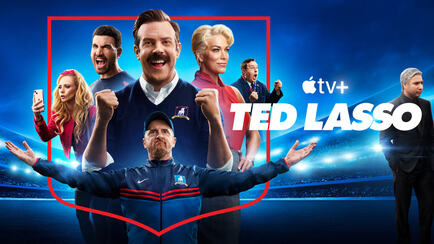
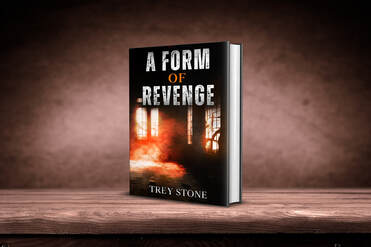
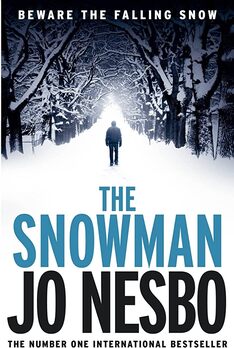

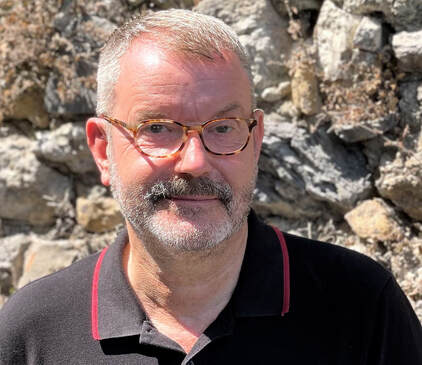
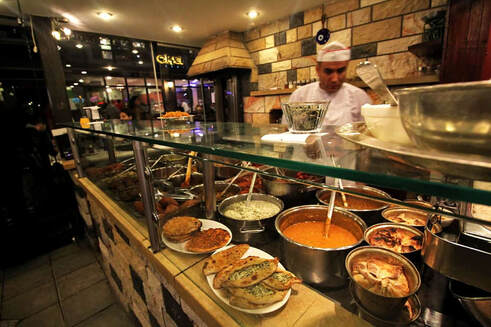
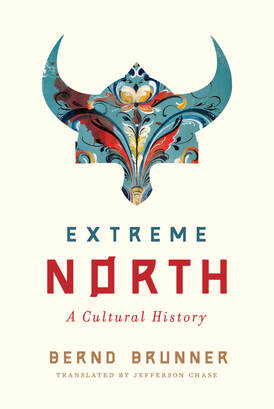
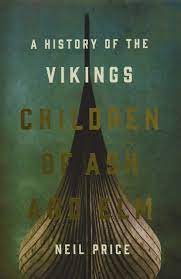
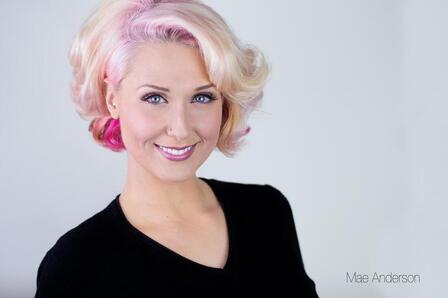
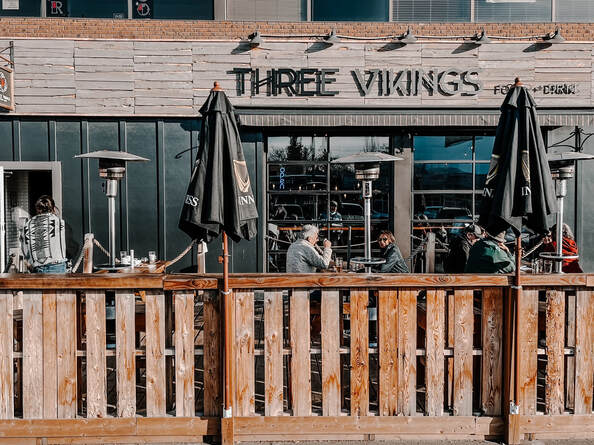




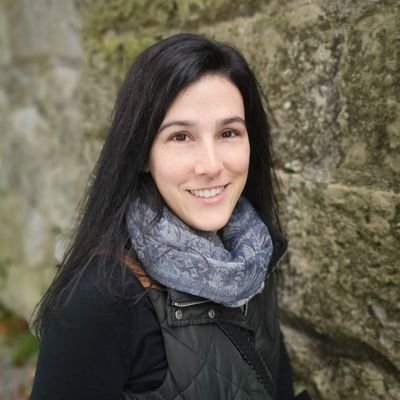

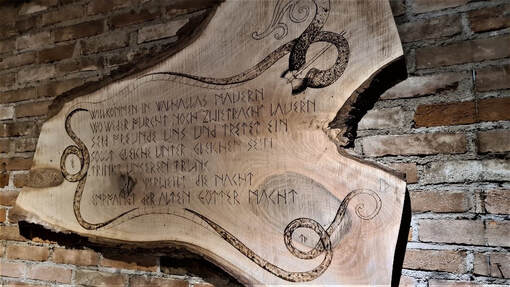
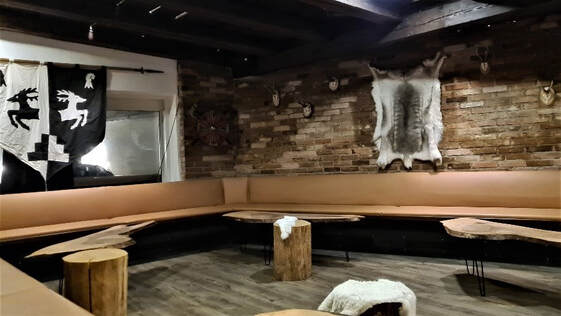
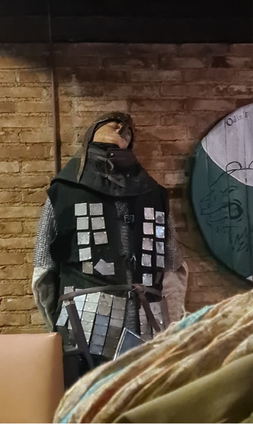
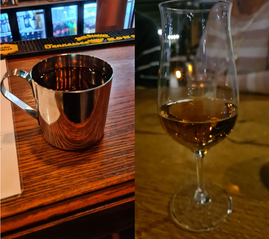
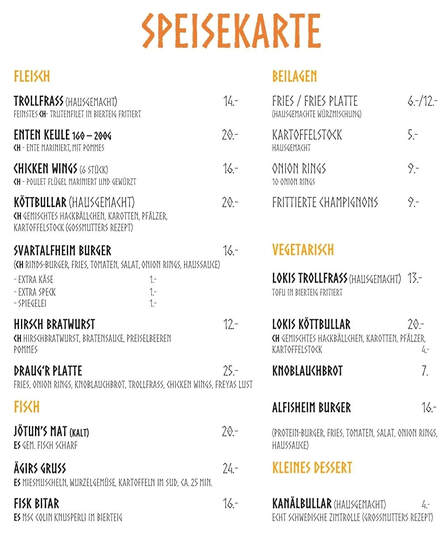
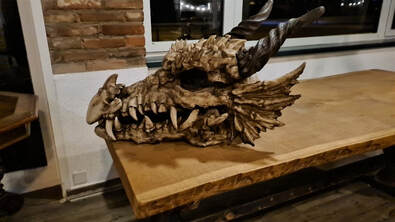
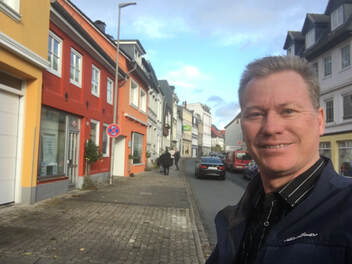
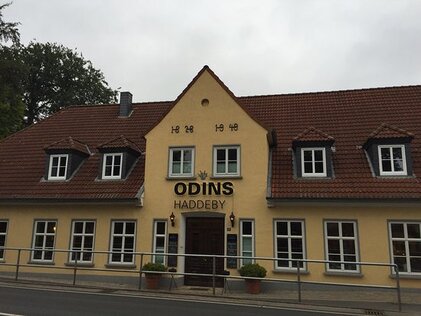
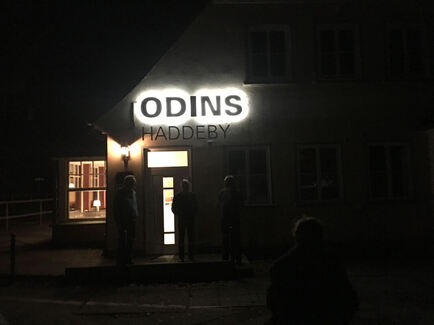
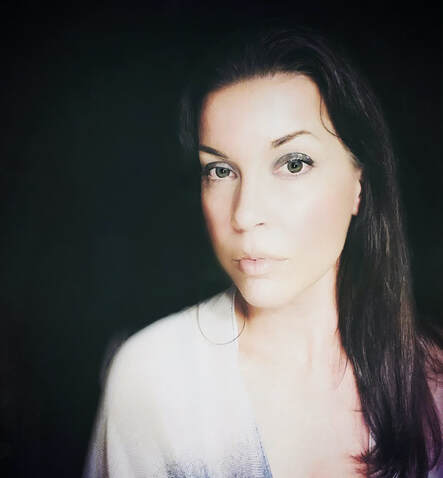
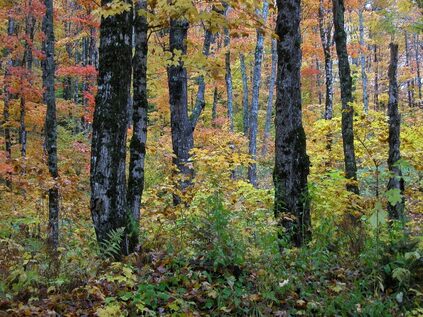
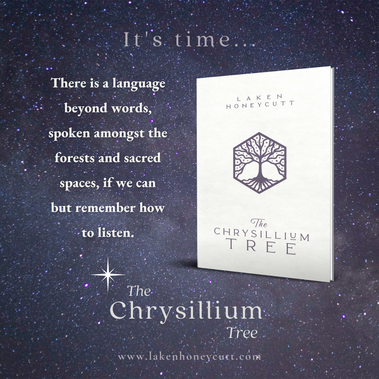
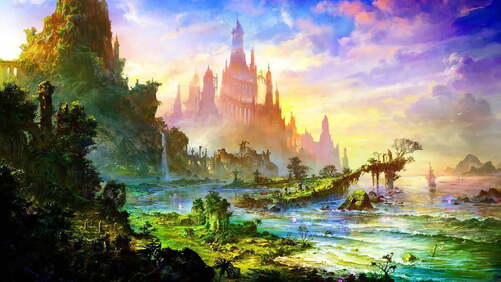
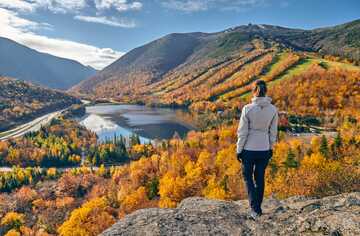
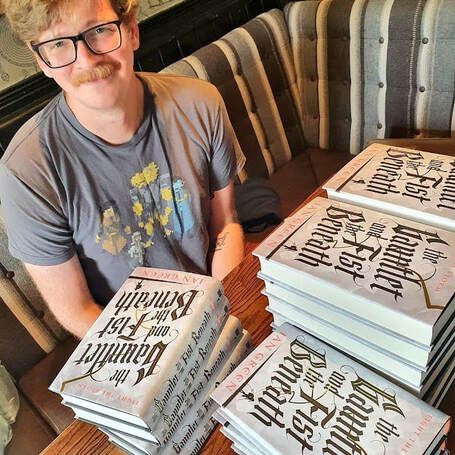
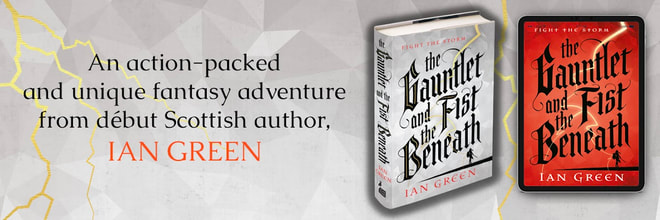
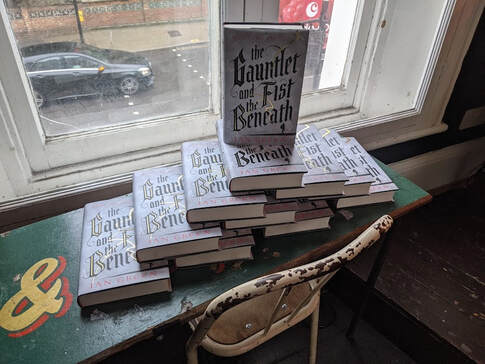
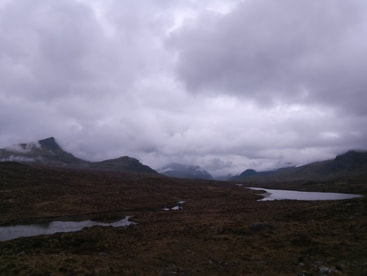
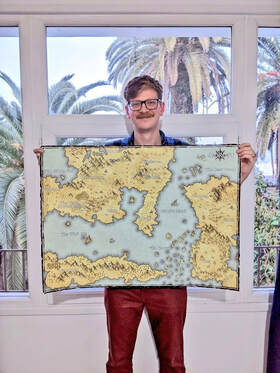
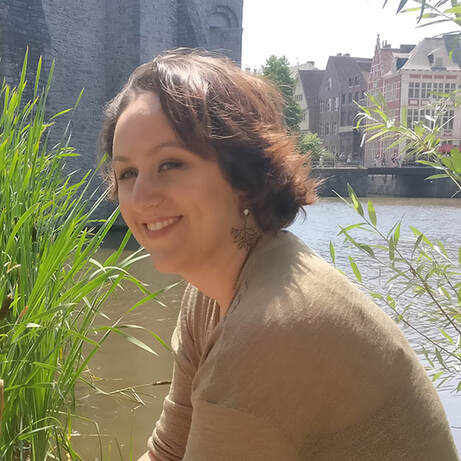
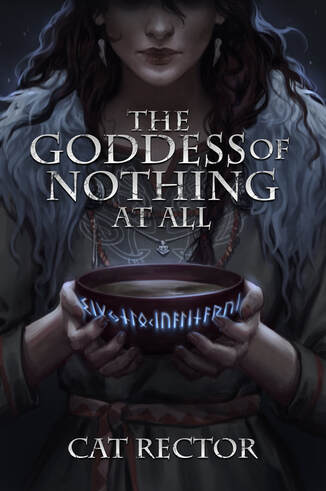
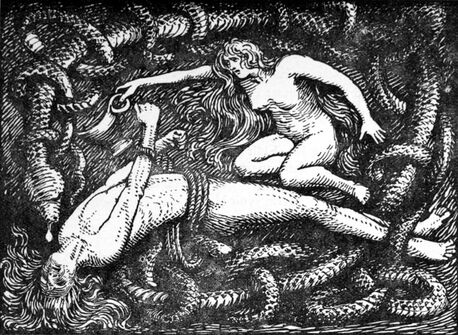
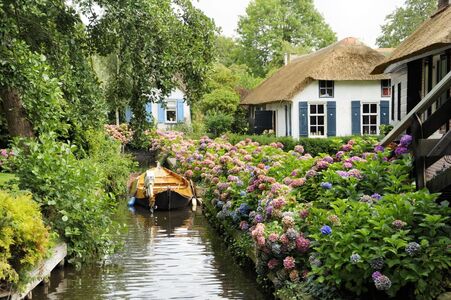
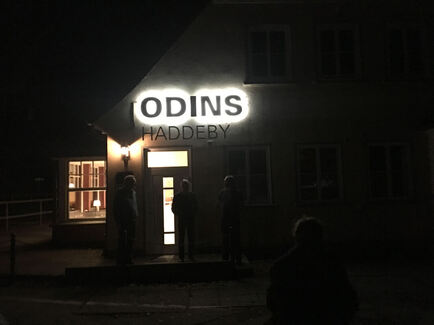
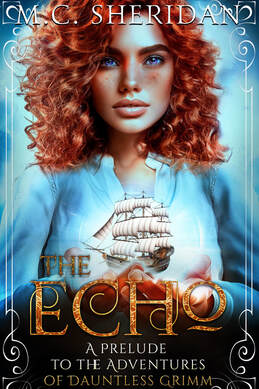
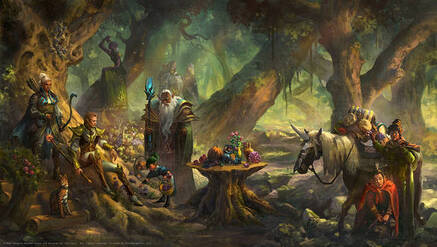
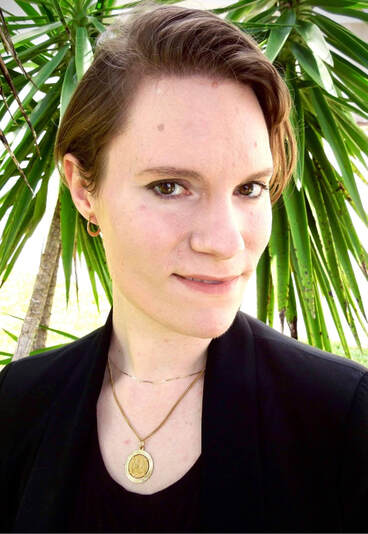


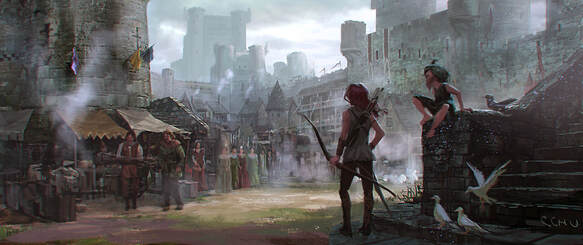
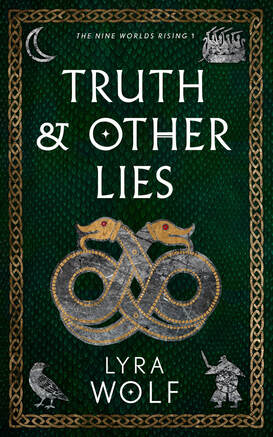
 RSS Feed
RSS Feed
